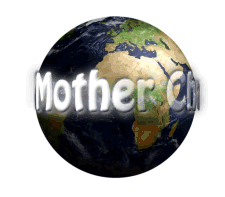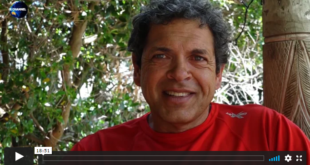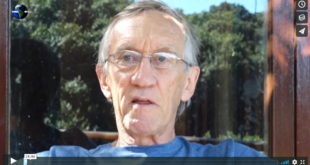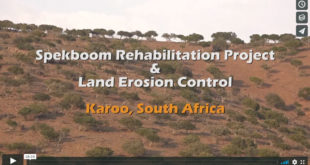FIRST HALF
Human behavior is causing environmental problems and he decided to go into law to help solve them. He saw that the problem was deeper than the law itself. It lies in the way we look at the world. He went into the philosophy of law – jurisprudence. He developed with others earth jurisprudence. Humans are part of a greater system and the purpose of our institutions should be to protect these systems. At the moment our legal systems are to legitimise and facilitate the exploitation of the earth. ANYTHING THAT IS NOT A HUMANS is defined as a thing and has no rights at all. So to define nature as property and companies as legal persons we facilitate the exploitation of the earth. The environmental challenges that we face are the output of a system that will inevitably produce things like the collapse of fish stocks, environmental degradation.
The fundamental problem is that we humans have convinced ourselves that we are superior and separate from the rest of life.
It is like a colonialism happening where humans are the colonizers and the natural world is the colonized. We all know the damage that colonialism caused.
We are governing ourselves as though we were separate from the systems that give us life. We need to move away from anthropocentric – regarding the world as “natural resources”.
We are merely part of the web of life as indigenous people have always told us
His earth jurisprudence has now penetrated the United Nations He wrote the book “Wild Law” which has carried the idea to build a global movement.
They have set up an international tribunal for the rights of nature which tries cases that work against nature.
In Ecuador, Nature was given rights.
Bolivian congress –35 000 people a universal declaration of the rights of nature was carried..
T\Nature having rights imposes an obligation on people to respect those rights. Existing systems of law are failing to protect the environment. More and more people are turning to earh jurisprudence, The Ganges river is now a legal person with rights not to be polluted, etc. Te Constitutional court in Columbia also recognised the major river in Columbia as a legal person.
Indigenous people are playing a key role because they already have the point of view that Nature has rights. Our Earth jurisprudence is a kind of translation of indigenous point of view into the language of modern times.
The Nicole Bownes University of Earth Team asked what they could do to enter this new way of life. He suggested that we should always regard everything we do as to how it benefits the community of life.
Sbonelo Zinya asked how he found people to participate in the idea and he said that the African customs already had a respect for the environment. So the ideas were not so strange to African people. So developing the movement in Africa was only complicated by the difficulties of organisation.
SECOND HALF
Do you think that it is loaded in favour of the bad boys winning. He said “ Change does not happen without organisation. You need to build alliances and conscientise people over a period of time. Then it happens very quickly – like the berlin wall and communism and Apartheid. But it may not have happened without the organisation.
We may not save our future on the planet. Few people will live much longer than this century unless we change these systems.
Voting rights to women. Etc. All these movements were movements to increase the number of people who have rights. The only way to protect the community of life is to also include them in the number of beings that require to have rights.
All our rights are merely because we exist as human beings. We are saying if that applies to humans it must apply to all those other species.
Every part of the system is necessary for the health of the system as a whole. We have established a Tribunal which signed the people’s convention to recognise the rights of Nature.
Judy Sole was hoping that the rights would prvent the fishing out of species or the placing of chemicals anywhere because they ultimately end up in the sea.
The most important thing is to create a body of people who will push for these rights. Buckminster Fuller said if you want to change a system don’t fight it, just develop another system that is better and the other system would die.
A successful court case protected the rights of the river to flow rather than the rights of a provincial government to widen a road and throw rocks in it.
In SA we would only be able to argue using procedure.
There is no police force to enforce the tribunals findings. Nor is there with human rights yet they get enforced,.eg A judgement against the coal mining in the Great Barrier Reef. They decided that no one should invest in any company which transported coal from the Great Barrier Reef.
One problem is that there is no real right of appeal against bad decisions. The only appeal is the minister who is too busy to read anything and usually follows the advice of the people who made the decision in the first place. We need a tribunal which contains experts who can question the substance of the decision,.
Unless it is so irrational that no rational person could have come to that decision it is normally very difficult to set a decision aside on anything but procedural grounds. It is therefore a review and not a true appeal.
This a fundamental weakness in our legal system. If we build a credibility for tribunal decisions, in a world of fake news, the findings of the tribunal will have power in ou societies.
 Mother Channel Environmental, climate change news and media.
Mother Channel Environmental, climate change news and media.



